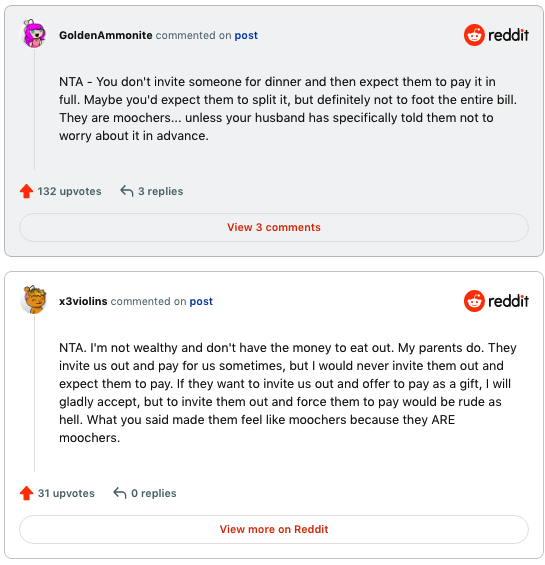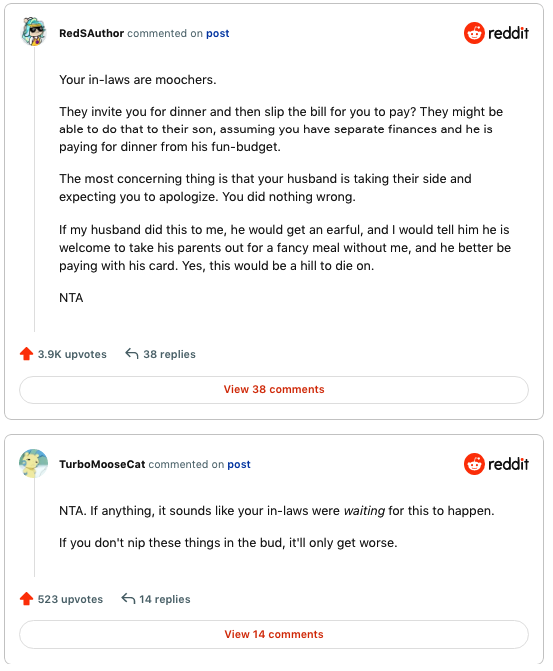A couple, self-proclaimed “amateur foodies,” occasionally invited their in-laws for meals and covered the expenses. However, a situation arose when the in-laws started assuming they would always foot the bill. On one occasion, the mother-in-law handed the bill to the woman’s husband without considering the cost, and they paid. When it happened again at a pricier restaurant, the woman became uncomfortable and mentioned her in-laws’ habit of letting them pay.
When the husband shared news of his wife’s work achievement and the mother-in-law proposed celebrating at an upscale restaurant, the woman asked, “Who’s paying?” This led to tension as her husband defended their ability to pay for dinners, while the woman felt they shouldn’t have to do so every time. Eventually, the husband realized his parents’ entitlement, and they decided to postpone the dinner until their anniversary. They would continue having meals together but declined further invites.
In this situation, the woman’s concern about constantly paying for her in-laws’ meals is valid. It’s essential to communicate openly about such matters to maintain healthy family relationships.


